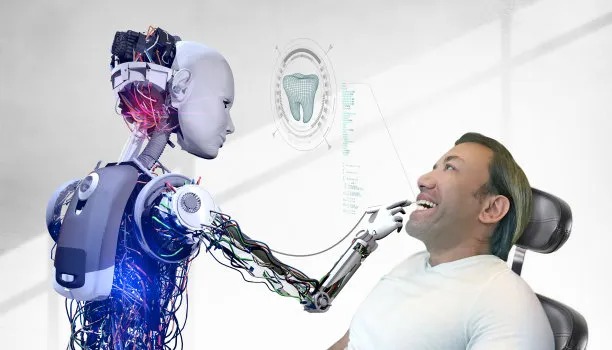Summary: Dental implants have emerged as a revolutionary solution for individuals suffering from missing teeth, providing not only improved functionality but also enhanced aesthetics. As an optimal option for restoring confidence, these implants mimic natural teeth in both look and feel. This article explores the transformative benefits of dental implants, highlighting their advantages over traditional dentures, the exceptional technological advancements in implant procedures, the psychological impact of restoring one’s smile, and practical considerations in the maintenance of dental implants. By understanding these aspects, one can appreciate why dental implants are considered the ultimate solution for missing teeth and a pathway to renewed self-esteem.
1. Advantages Over Traditional Dentures

One of the primary reasons dental implants have revolutionized the way we approach tooth loss is their significant advantages over traditional dentures. Unlike dentures that can often slip or become uncomfortable, dental implants are securely anchored to the jawbone, offering a stable and reliable solution. This stability allows for a more natural bite and the ability to enjoy a wider range of foods without worry.
Moreover, dental implants help preserve the jawbone’s integrity. When a tooth is lost, the underlying bone often deteriorates due to lack of stimulation. Implants provide the necessary stimulation to the bone, preventing bone loss and maintaining the facial structure. This is something traditional dentures cannot achieve, often leading to a sunken appearance over time.
Furthermore, maintaining dental hygiene is easier with implants compared to dentures. Patients can brush and floss dental implants just like natural teeth, whereas dentures require special cleaning solutions and techniques. This ease of care contributes to better oral hygiene and overall health.
2. Technological Advancements in Implant Procedures
Advancements in dental technology have also played a pivotal role in making implants more accessible and effective. Techniques such as 3D imaging and computer-aided design have revolutionized the planning and placement of implants, allowing for personalized treatment plans tailored to each patient’s unique anatomy.
Minimally invasive techniques, including the use of guided surgery, have also improved recovery times and reduced discomfort. With less tissue trauma during the implant procedure, patients benefit from quicker healing, allowing them to restore their smiles in a shorter time frame.
Additionally, the materials used in dental implants have significantly advanced over the years. Modern implants utilize biocompatible materials like titanium, which are known for their durability and ability to fuse with bone. This not only enhances the longevity of the implants but also their acceptance by the body, leading to favorable outcomes for patients.
3. Psychological Impact of Restoring Ones Smile
The psychological benefits of dental implants cannot be overstated. For many individuals, missing teeth can lead to feelings of self-consciousness and decreased self-esteem. Dental implants restore not only the functionality of chewing but also the confidence often lost due to gaps in one’s smile.
Research has shown that the restoration of a smile can have far-reaching effects on life quality, impacting social interactions, employment opportunities, and overall happiness. Patients frequently report a significant boost in self-worth and a more positive outlook on life after receiving implants.
Moreover, the improved aesthetics provided by implants often encourage individuals to engage more in social activities. When people feel attractive, they are more likely to smile and interact with others, further enhancing their social relationships and emotional wellbeing.
4. Practical Considerations and Maintenance
While dental implants offer numerous benefits, it is essential to understand the practical considerations involved in their maintenance. Regular dental check-ups and proper oral hygiene are crucial for the longevity of implants. Patients must commit to brushing, flossing, and using mouthwash daily to prevent gum disease and ensure the health of the surrounding tissues.
Moreover, lifestyle choices can influence the success of dental implants. Smoking, for example, can negatively impact the healing process and increase the risk of implant failure. Patients are often advised to quit smoking or at least reduce their tobacco intake for optimal outcomes.
Finally, costs associated with dental implants can be a consideration for many patients. While they may seem expensive upfront, their durability and the life-changing benefits they provide often make them a worthwhile investment in ones overall health and confidence. Many dental practices also offer financing options to make this transformative treatment more accessible.
Summary:
In conclusion, dental implants are more than just a solution for missing teeth; they represent a significant advancement in dentistry, with profound implications for functionality, aesthetics, and emotional wellbeing. From their advantages over traditional options to cutting-edge technological advancements, the impact of dental implants extends deeply into patients lives, fostering confidence and promoting better health. As the field of dental medicine continues to evolve, implants will remain a cornerstone for those seeking to reclaim their smiles.
This article is compiled by Vickong Dental and the content is for reference only.
Vickong Dental
Vickong Dental is a large medical group established in Hong Kong in 2008 by professors from well-known medical universities in Guangdong and Hong Kong, as well as medical doctors from key national '985' universities (including Master's supervisors and senior professors). The chain of branches brings together expert dentists with PhDs and Master's degrees from Hong Kong and Mainland China, committed to providing high-quality dental treatment.
"Vickong Dental Practices the University Motto of 'Healing and Serving Society,' with a Stable Operation for Sixteen Years. It Has Been honored with Hong Kong Enterprise Leaders's Choice,' and is a Global Trusted Implant Center for the Nobel Implant System. Recommended by Hong Kong Metro Broadcast and Guangdong Television, it Serves Customers from Over Thirty Countries and Regions, Gaining the Trust and Favor of Citizens from the Guangdong-Hong Kong-Macau Greater Bay Area and Surrounding Cities.

Thousands of customers' unanimous praise
The most recognized and highly recommended dental service by customers in the Guangdong-Hong Kong-Macau Greater Bay Area
We Ensure You Receive Detailed Care and Attention Here
Hong Kong standards, Shenzhen prices, Your Trusted English-speaking dentists

Vickong Dental Medical-Grade Instrument Disinfection Process
Vickong Dental Medical-Grade Instrument Disinfection Process

Vickong Dental Chain: A Warm and Comfortable Environment for Treatment






Appointment Hours

Q&A
Why choose Vickong Dental?
Vickong Dental practices the university motto 「Medicine to Benefit Society」, with each branch bringing together highly qualified dentists with doctoral and master’s degrees from Hong Kong and the Mainland, and has maintained seventeen years of steady operation。Recipient of 「2024 Hong Kong Enterprise Leaders Brand」, 「2025 Hong Kong Enterprise Leaders Brand」, a Nobel Biocare Global Trusted Implant Center, and a brand recommended by Metro Radio Hong Kong and Guangdong TV。
To date, we have served customers from more than thirty countries and regions,earning exceptionally high word-of-mouth recognition and trusted recommendations from residents across the Guangdong-Hong Kong-Macao Greater Bay Area and surrounding cities
We have eight major branches in Zhuhai、Shenzhen,and a consultation and service assurance center in Hong Kong,so you can book a free consultation at any time for any questions,which is very reassuring.
If I do not accept the quotation after the CT scan, will I be charged??
No! As long as the actual treatment has not started, you will not be charged any fees.
Will there be any additional charges during the treatment process?
No, there won’t be any additional charges. Before treatment begins, we will clearly explain the treatment plan and its corresponding fees. Only after the patient agrees and signs the consent form will we proceed with the dental service.
Can I pay in Hong Kong dollars?
Yes. Vickong Dental accepts payment in Hong Kong dollars. The amount will be converted based on the exchange rate of the day, and the applicable rate will be clearly communicated to you in advance.
Can I reschedule my appointment at any time?
Yes. Please contact us via **WeChat** or **WhatsApp** as early as possible, providing your original appointment time and details, along with your preferred new date and time slot for rescheduling.













